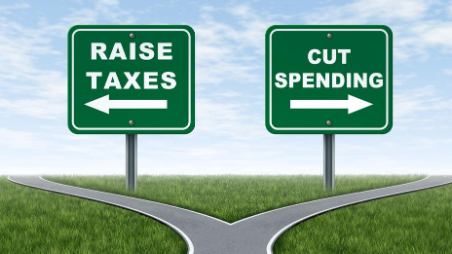This is a story about an unhappily married couple. One day the husband took ill and was rushed to the hospital. The physician informed his wife that although her husband’s condition was serious, he would be fine if they could put him on a ventilator for a couple of days, giving his body time to fight off an infection.
The wife, to the physician’s surprise, refused to put her husband on the vent claiming that he requested never to be put on artificial life sustaining equipment. The physician protested that this was just a temporary measure. The wife was adamant and would not relent. Needless to say, she became the proverbial “merry widow” in short order.
This tale of woe is reminiscent of the recalcitrance of Republican senators who refuse to pass a stimulus package to help support our fading economy. They believe, as they did during the Great Recession of 2008-2009, that the time for austerity is when the economy is falling apart. Conversely, when times are good, we hear nary a word about reducing deficits. No, they just want to spend more.
When we have an anemic recovery, they are the first ones to point fingers at their opponents claiming that it was THEIR fault that we experienced sub-optimal growth. This is a lesson that economists have often cited in the hopes of avoiding a repeat performance. Policy decisions are not abstractions, they have a tremendous impact on worker’s lives, their credit ratings, ability to retire in dignity, and their health. Policy decisions can be put on hold, but we can’t put our lives on hold.
Economists worth their salt are advocating that our economy needs a large stimulus package now to support consumers, businesses, and state and local governments until we have a significant percentage of the public vaccinated. Further, they uniformly suggest that any stimulus program should err on the side of too large, rather than too small. The reason for this is almost all of the stimulus dollars will find their way into the economy. A larger stimulus program will help the economy recover faster. Smaller programs will impede economic growth for years, as was the case during the Great Recession.
One of the common mistakes we hear politicians, and quite frankly many of our friends making is, comparing government debt with household debt. Governments can produce an unlimited supply of risk-free low interest rate Treasury securities. Over the last 40 years an increase in government debt has been accompanied by a dramatic decline in interest rates. As it now stands, the U.S. can borrow funds for ten years at a 0.8% interest rate. Over 30 years the rate is just 1.6% per year.
A household’s income is the primary driver of debt servicing. With government, it is demand for their bonds. As long as the U.S. remains a global “reserve currency,” demand for our securities remains strong, and our government remains stable, debt levels can rise higher than thought previously possible. A lack of understanding of economic principles, coupled with politically popular but wrongheaded comparisons of government and household debt have the potential to cause a lot of pain and damage not just to our economy, but to our lives. Politicians should think long and hard about the unnecessary pain and suffering their austerity policies can cause at a time like this.
Deprecated: preg_replace(): Passing null to parameter #3 ($subject) of type array|string is deprecated in /home/ogorek_dev_minerva/ogorek.minervawddev.com/wp-includes/kses.php on line 1805
PLEASE SEE IMPORTANT DISCLOSURE INFORMATION HERE.




